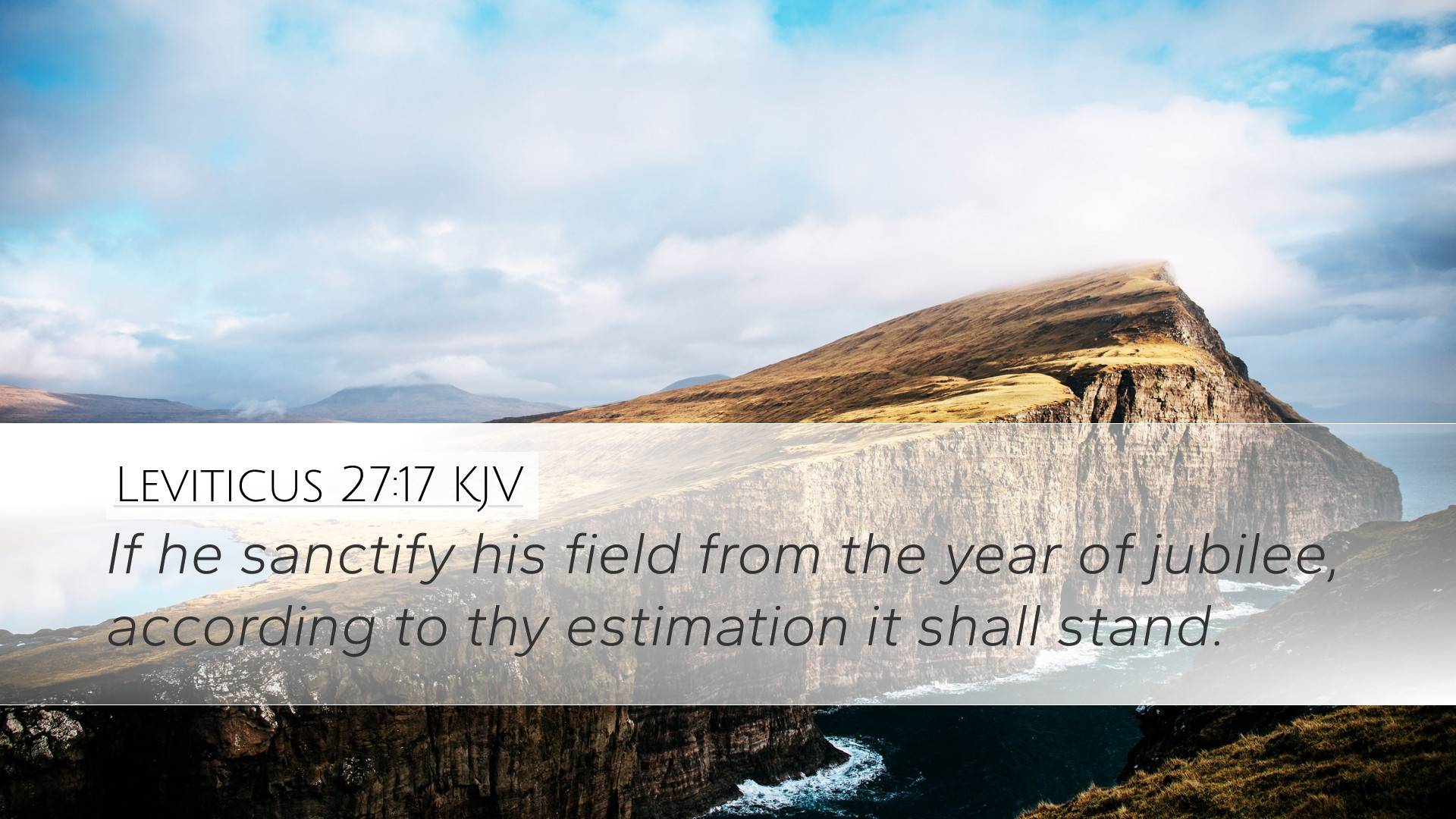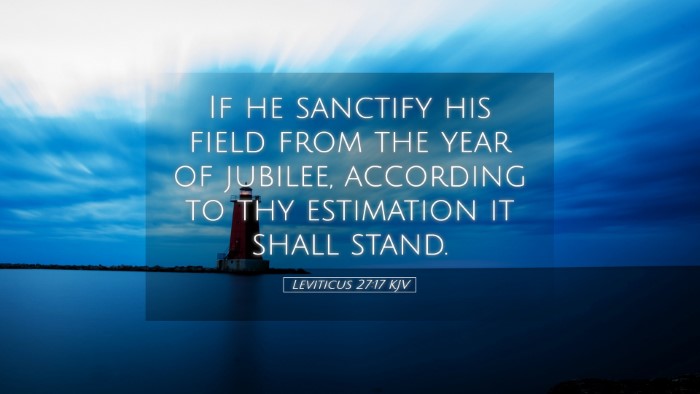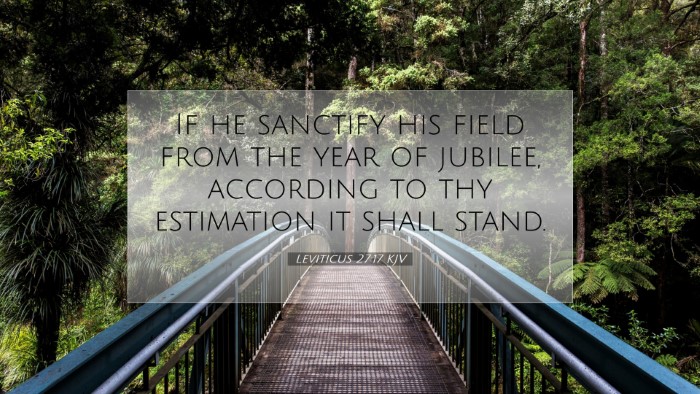Commentary on Leviticus 27:17
Leviticus 27:17 states: "If he sanctify his field from the year of jubilee, according to thy estimation it shall stand."
This verse addresses the sanctification of property and the practices surrounding the valuation of fields in the context of the ancient Israelite society.
Several public domain commentaries provide deep insights into the implications and theological significance of this verse. The following sections synthesize the thoughts of Matthew Henry, Albert Barnes, and Adam Clarke.
Understanding the Context
Leviticus offers a framework for holiness and the covenant relationship between God and Israel.
The regulations provided in this chapter serve to maintain a constant awareness of God’s rulership over all aspects of life, including property. This adds a spiritual dimension to what might appear to be merely administrative directives.
The year of Jubilee (Leviticus 25:8-17) is especially significant here, as it symbolizes restoration, freedom, and the divine provision.
Matthew Henry's Perspective
According to Matthew Henry, the provisions for the sanctification of a field reflect God's ownership of the earth and all that is within it.
When an individual dedicates a field during the year of Jubilee, it acknowledges that the land ultimately belongs to God.
Henry emphasizes the importance of God’s valuation, as determined by the priest, which serves as a reminder of God's sovereignty in assessing what is valuable in His kingdom.
-
Ownership: Henry posits that recognizing God’s ownership leads to spiritual benefits and the appropriate use of resources.
-
Sanctification and Valuation: The act of sanctifying and then having the value established by the priest highlights the seriousness of the commitment.
-
Symbolism of the Jubilee: The Jubilee here symbolizes restoration and gives insight into God’s plan for redemption and restoration of His people.
Albert Barnes' Insights
Albert Barnes comments that this sacrificial element surrounding land reflects a deep spiritual truth about investment in God's kingdom.
He stresses that dedicating property serves as a reminder of priorities. In God’s eyes, the value of earthly possessions is secondary to spiritual investment.
-
Governance and Responsibility: Barnes discusses how these laws provided a framework for societal governance amongst the Israelites, establishing norms that fostered community responsibility.
-
Temporal vs. Eternal Value: The valuation process serves as a reminder of the transient nature of earthly possessions and the eternal significance of one’s relationship with God.
-
Reflection of God’s Nature: Barnes notes that this practice reveals God's nature as one who values faithfulness and dedication to His principles.
Adam Clarke's Commentary
Adam Clarke highlights the practical aspects of Leviticus 27:17, discussing how it would have practical applications in the agricultural society of ancient Israel.
The sanctification of land was both a sacred act and a practical necessity, impacting future generations and their inheritance.
-
Generational Impact: Clarke emphasizes the importance of ensuring the continuity of God’s promises across generations through the careful handling of land ownership.
-
Accountability to God: The act of sanctifying implies an ongoing accountability to God for the use and care of that which He has provided.
-
Rich Symbolism: Clarke underscores the symbolism of setting apart—consecrating elements in worship today reflect a command to live in holiness.
Implications for Today
The thoughts presented by these commentators resonate with modern Christians as they consider stewardship, the sanctity of property, and the priorities in their lives.
Leviticus 27:17 can inspire a deeper understanding of how to value not just material possessions, but one’s time, talent, and resources as dedicated to God’s kingdom.
-
Stewardship: Believers are called to view all possessions as gifts from God, to be managed with care and respect for His domain.
-
Spiritual Reflection: As one dedicates their time and resources to God, they invite His presence and sovereignty into personal and communal endeavors.
-
Seek First the Kingdom: This passage prompts Christians to prioritize their lives by dedicating their work and efforts to the glory of God.
Conclusion
Leviticus 27:17 encapsulates profound theological truths about God's ownership, the importance of valuation, and our responsibilities as stewards of His creation.
By studying insights from pivotal commentaries, we glean timeless principles that remain applicable for pastors, students, theologians, and scholars today.
As we seek to apply these insights, we can foster a profound appreciation for the divine order that governs our lives and possessions.


